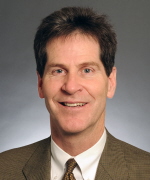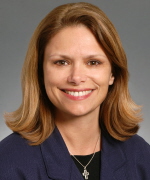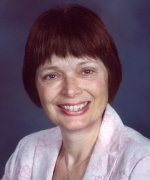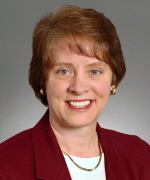A Profile of Minnesota’s Swing and Stronghold State Senate Districts

Today, in Smart Politics’ fourth report, attention is turned to the Minnesota Senate – the battle for control of which has been notoriously noncompetitive ever since partisan legislative elections were established in the Gopher State in 1974.
The DFL has maintained continuous control of the upper chamber in St. Paul throughout these 35 years, winning nearly two-thirds (63.5 percent) of the 706 general and special election contests conducted during this span (448 seats). Republicans have won just 36.1 percent of these contests (255 seats), with third parties winning the remaining 3 seats (0.4 percent).
Since new district maps were implemented in 2002, the DFL has won 86 of 143 general and special election races (60.1 percent), with Republicans winning 56 contests, and 1 seat going to an Independence Party candidate.
Prospects for substantial GOP Senate gains in 2010 are bleak, given the historical dominance of the DFL in Senate races for the past few generations as well as the decided momentum the DFL enjoyed coming out of the 2006 election.
For example, the DFL improved its standing in an astounding 55 of the state’s 67 Senate districts from the 2002 to 2006 general election cycles – either increasing its margin of victory or decreasing its margin of loss in 82 percent of the state’s senate districts. The DFL improved its standing by double-digit margins in 35 of these districts.
Meanwhile, Republicans gained ground in 2006 in just 12 districts, notching two notable pickups (District 11 in Alexandria and District 13 in Willmar), but only cutting into the DFL margin of victory from 2002 in just five other districts: District 08 in Cloquet (Tony Lourey, an 8.8-point gain), District 22 in Worthington (Jim Vickerman, 8.1 points), District 47 in Coon Rapids (Leo Foley, 4.6 points), District 06 in Duluth (Thomas Bakk, 1.9 points), and District 65 in St. Paul (Sandra Pappas, 37.2 points). (Note: Pappas ran unchallenged in 2002).
Still, 2010 presents new opportunities for the GOP, with the changing national political environment and the very real possibility that DFL Senators have reached their peak in support among the electorate statewide.
For example, in 2006, DFL candidates for Senate won 55.3 percent of the vote statewide – their best mark since 1992 (55.6 percent), and a 5.6-point improvement from 2002 (49.7 percent). GOP Senate candidates earned only 43.3 percent of the vote statewide in 2006, their worst showing since 1992 (43.2 percent), and down 2.8 points from 2002 (46.1 percent).
To be sure, there will be opportunities for pickups on both sides of the aisle in 2010. Fourteen Senate seats have been held by by both the Republicans and the DFL since 2002, although the DFL currently controls 12 of them. (A fifteenth seat, District 30 in Rochester, has been held by the Independence and DFL parties).

Republicans will also eye the seats held by Dan Skogen in District 10 (Fergus Falls), John Doll in District 40 (Bloomington), and (potential 3rd CD candidate) Terri Bonoff in District 43 (Plymouth) – all districts the GOP won by double-digit margins back in 2002.
Minnesota Senate Districts That Have Changed Party Control, 2002-2008
|
District
|
Area
|
State Senator
|
Party
|
Comp. Races
|
|
04
|
Bemidji
|
Mary Olson
|
DFL
|
2
|
|
10
|
Fergus Falls
|
Dan Skogen
|
DFL
|
0
|
|
11
|
Alexandria
|
Bill Ingebrigsten
|
GOP
|
2
|
|
13
|
Willmar
|
Joe Gimse
|
GOP
|
2
|
|
15
|
St. Cloud
|
Tarryl Clark
|
DFL
|
1
|
|
16
|
Big Lake
|
Lisa Fobbe
|
DFL
|
1
|
|
17
|
North Branch
|
Rick Olseen
|
DFL
|
2
|
|
25
|
Northfield
|
Kevin Dahle
|
DFL
|
2
|
|
30*
|
Rochester
|
Ann Lynch
|
DFL
|
1
|
|
31
|
Winona
|
Sharon E. Ropes
|
DFL
|
1
|
|
38
|
Eagan
|
Jim Carlson
|
DFL
|
2
|
|
40
|
Bloomington
|
John Doll
|
DFL
|
1
|
|
43
|
Plymouth
|
Terri Bonoff
|
DFL
|
2
|
|
56
|
Woodbury
|
Kathy Saltzman
|
DFL
|
2
|
|
53
|
White Bear Lake
|
Sandy Rummel
|
DFL
|
2
|
* Won by the Independence Party in 2002. Data compiled by Smart Politics.
In addition to these 15 ‘swing districts,’ another 14 Senate districts that have not changed party control have hosted at least one competitive contest since 2002. Eight of these districts are currently held by Republicans, and seven by the DFL.
Five of these districts have yielded competitive races in both the 2002 and 2006 general elections and are definitely districts to watch in 2010: District 28 in Red Wing (represented by DFLer Steve Murphy), District 47 in Coon Rapids (DFLer Leo Foley), District 48 in Ramsey (GOPer Mike Jungbauer), District 51 in Blaine (DFLer Don Betzold), and District 52 in Forest Lake (GOPer Ray Vandeveer).
Competitive Minnesota Senate Districts That Have Not Changed Party Control, 2002-2008
|
District
|
Area
|
State Senator
|
Party
|
Comp. Races
|
|
12
|
Brainerd
|
Paul Koering
|
GOP
|
1
|
|
23
|
Mankato
|
Kahty Sheran
|
DFL
|
1
|
|
24
|
Fairmont
|
Julie Rosen
|
GOP
|
1
|
|
26
|
Owatonna
|
Dick Day
|
GOP
|
1
|
|
27
|
Austin
|
Dan Sparks
|
DFL
|
1
|
|
28
|
Red Wing
|
Steve Murphy
|
DFL
|
2
|
|
37
|
Apple Valley
|
Chris Gerlach
|
GOP
|
1
|
|
42
|
Eden Prairie
|
David Hann
|
GOP
|
1
|
|
47
|
Coon Rapids
|
Leo Foley
|
DFL
|
2
|
|
48
|
Ramsey
|
Mike Jungbauer
|
GOP
|
2
|
|
49
|
Coon Rapids
|
Debbie Johnson
|
GOP
|
1
|
|
51
|
Blaine
|
Don Betzold
|
DFL
|
2
|
|
52
|
Forest Lake
|
Ray Vandeveer
|
GOP
|
2
|
|
57
|
Cottage Grove
|
Katie Sieben
|
DFL
|
1
|
Data compiled by Smart Politics.

The two non-metro districts cracking the Top 10 DFL stronghold list are District 01 in Thief River Falls at #4 (represented by Leroy Stumpf, 62.1 points) and District 05 in Hibbing at #6 (David Tomassoni, 54.9 points).
Undefeated DFL Minnesota Senate Districts by Average Margin of Victory, 2002-2008
|
Rank
|
District
|
Area
|
State Senator
|
MoV
|
|
1
|
65*
|
St. Paul
|
Sandra Pappas
|
77.6
|
|
2
|
61
|
Minneapolis
|
Linda Berglin
|
68.4
|
|
3
|
60
|
Minneapolis
|
Scott Dibble
|
62.4
|
|
4
|
01**
|
Thief River Falls
|
Leroy Stumpf
|
62.1
|
|
5
|
59
|
Minneapolis
|
Larry Pogemiller
|
55.1
|
|
6
|
05
|
Hibbing
|
David Tomassoni
|
54.9
|
|
7
|
62
|
Minneapolis
|
Patricia Torres Ray
|
52.8
|
|
8
|
58
|
Minneapolis
|
Linda Higgins
|
52.5
|
|
9
|
66
|
St. Paul
|
Ellen Anderson
|
50.8
|
|
10
|
64
|
St. Paul
|
Richard Cohen
|
48.5
|
|
11
|
06
|
Duluth
|
Thomas Bakk
|
43.9
|
|
12
|
07
|
Duluth
|
Yvonne P. Solon
|
38.7
|
|
13
|
09
|
Moorhead
|
Keith Langseth
|
33.9
|
|
14
|
20
|
Montevideo
|
Gary Kubly
|
30.8
|
|
15
|
44
|
St. Louis Park
|
Ron Latz
|
30.2
|
|
16
|
63
|
Richfield
|
Ken Kelash
|
29.0
|
|
17
|
55
|
Maplewood
|
Charles Wiger
|
27.5
|
|
18
|
46
|
Brooklyn Park
|
Linda Scheid
|
27.0
|
|
19
|
67
|
St. Paul
|
Mee Moua
|
26.8
|
|
20
|
03
|
Grand Rapids
|
Tom Saxhaug
|
25.2
|
|
21
|
45
|
Crystal
|
Ann Rest
|
24.0
|
|
22
|
39
|
Inver Grove Heights
|
James Metzen
|
22.2
|
|
23
|
22
|
Worthington
|
Jim Vickerman
|
20.1
|
|
24
|
08
|
Cloquet
|
Tony Lourey
|
19.6
|
|
25
|
57
|
Cottage Grove
|
Katie Sieben
|
19.2
|
|
26
|
54
|
Roseville
|
John Marty
|
19.0
|
|
27
|
50
|
New Brighton
|
Satveer Chaudhary
|
18.8
|
|
27
|
02
|
Park Rapids
|
Rod Skoe
|
18.8
|
|
29
|
27
|
Austin
|
Dan Sparks
|
17.8
|
|
30
|
23
|
Mankato
|
Kahty Sheran
|
9.0
|
|
31
|
51
|
Blaine
|
Don Betzold
|
7.5
|
|
32
|
28
|
Red Wing
|
Steve Murphy
|
6.9
|
|
33
|
47
|
Coon Rapids
|
Leo Foley
|
3.7
|
* No opposition in 2002. ** No opposition in 2006. Data compiled by Smart Politics.

Rounding out the Top 5 most dominant GOP Senate districts since 2002 are District 21 in New Ulm (Dennis Frederckson, 62.5 points), District 18 in Hutchinson (Steve Dille, 32.0 points), District 33 in Plymouth (Gen Olson, 26.5 points), and District 29 in Rochester (Senate Minority Leader Dave Senjem, 25.1 points).
Undefeated Republican Minnesota Senate Districts by Average Margin of Victory, 2002-2008
|
Rank
|
District
|
Area
|
State Senator
|
MoV
|
|
1
|
35**
|
Shakopee
|
Claire Robling
|
66.0
|
|
2
|
21*
|
New Ulm
|
Dennis Frederickson
|
62.5
|
|
3
|
18
|
Hutchinson
|
Steve Dille
|
32.0
|
|
4
|
33
|
Plymouth
|
Gen Olson
|
26.5
|
|
5
|
29
|
Rochester
|
Dave Senjem
|
25.1
|
|
6
|
41
|
Edina
|
Geoff Michel
|
24.7
|
|
7
|
34
|
Chanhassen
|
Julianne Ortman
|
24.3
|
|
8
|
32
|
Maple Grove
|
Warren Limmer
|
23.0
|
|
9
|
36
|
Lakeville
|
Pat Pariseau
|
22.9
|
|
10
|
19
|
Buffalo
|
Amy Koch
|
22.3
|
|
11
|
37
|
Apple Valley
|
Chris Gerlach
|
18.4
|
|
12
|
26
|
Owatonna
|
Dick Day
|
16.4
|
|
13
|
14
|
Sauk Rapids
|
Michelle Fischbach
|
15.0
|
|
14
|
49
|
Coon Rapids
|
Debbie Johnson
|
14.0
|
|
15
|
24
|
Fairmont
|
Julie Rosen
|
13.9
|
|
16
|
42
|
Eden Prairie
|
David Hann
|
11.4
|
|
17
|
52
|
Forest Lake
|
Ray Vandeveer
|
6.7
|
|
18
|
12
|
Brainerd
|
Paul Koering
|
6.2
|
|
19
|
48
|
Ramsey
|
Mike Jungbauer
|
5.7
|
* No opposition in 2002. ** No opposition in 2006. Data compiled by Smart Politics.
Two DFL and two Republican Senators are currently seeking the governor’s mansion in 2010. DFLer Tom Bakk represents the 11th most dominant DFL district (District 06, in Duluth) while colleague John Marty represents the district with the 26th highest average margin of victory for the DFL in senate contests (District 54 in Roseville).
On the Republican side, David Hann represents the 16th strongest GOP district (District 42, in Eden Prairie), while Mike Jungbauer represents the very competitive 48th District in Ramsey (ranked #19 with only a 5.7-point average GOP margin of victory since 2002).
Additional opportunities for competitive districts may arise, of course, in the event of retirements or incumbents failing to win their party’s nomination or primary.
Follow Smart Politics on Twitter.

Thank you for the very informative post.